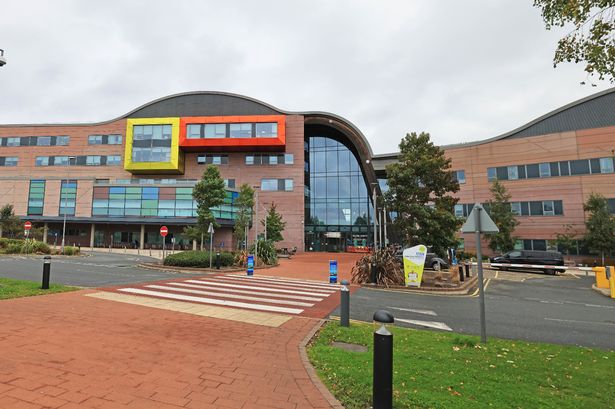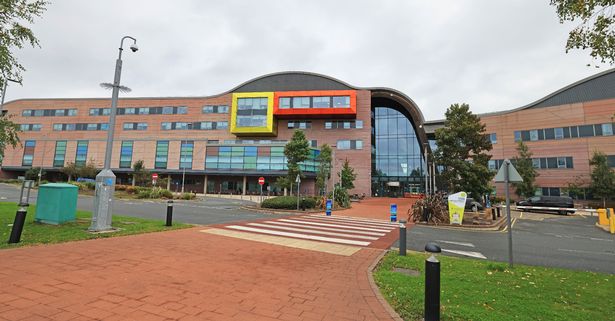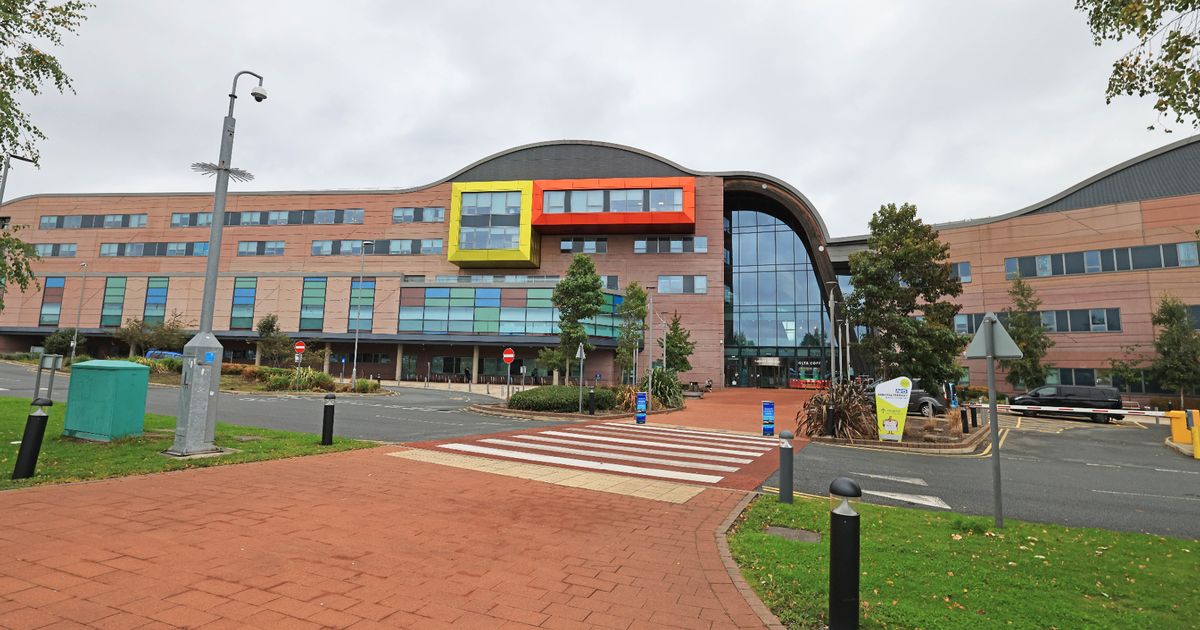The hospital, alongside UKHSA and Directors of Public Health for Liverpool, Sefton and Knowsley, addressed the letter to parents and carers
14:19, 07 Jul 2025Updated 14:37, 07 Jul 2025
 Alder Hey Children’s Hospital, Liverpool.(Image: Colin Lane/Liverpool Echo)
Alder Hey Children’s Hospital, Liverpool.(Image: Colin Lane/Liverpool Echo)
Alder Hey Children’s Hospital has issued an open letter to parents as “several children seriously unwell in hospital”. The hospital, alongside UKHSA and Directors of Public Health for Liverpool, Sefton and Knowsley, shared the letter on its social media platforms today, Monday, July 7.
The letter said there has been a recent increase in measles cases in Merseyside which is “putting children and young people at risk within out communities and our hospital.” It added that several children are “seriously unwell” and are receiving treatment at the hospital.
NHS bosses said the reason there has been more cases of measles in children and young people is because fewer people are having the MMR vaccine, which protects against measles as well as two other viruses called mumps and rubella. The letter stated that the number of children being treated at Alder Hey for effects and complications of measles is increasing.
Children in hospital who are “very poorly for another reason”, are at higher risk of catching the virus, the letter added. According to the NHS, measles is an infection that spreads very easily and can cause serious problems in some people.
Measles usually starts with cold-like symptoms, followed by a rash a few days later. Some people may also get small spots in their mouth.
The first symptoms include a runny or blocked nose, a high temperature, a cough, sneezing, and red, sore, watery eyes. A rash usually appears a few days later, starting on the face and behind the ears before spreading to the rest of the body.
 Alder Hey Children’s Hospital, Liverpool.(Image: Colin Lane/Liverpool Echo)
Alder Hey Children’s Hospital, Liverpool.(Image: Colin Lane/Liverpool Echo)
Spots of the rash are sometimes raised and joined together to form blotchy patches, and they’re not normally itchy. The rash looks brown or red on white skin and may be harder to see on brown or black skin, NHS guidance states, adding: “It’s very unlikely to be measles if you’ve had both doses of the MMR vaccine or you’ve had measles before.”
You should contact 111 or ask for an urgent GP appointment if you think you or your child may have measles, if your child is under one year old and has come into contact with someone who has measles, or if you’ve been in close contact with someone who has measles and are pregnant or have a weakened immune system.
You should also seek urgent medical advice if you or your child have a high temperature that has not come down after taking paracetamol or ibuprofen; you or your child have difficulty breathing – you may feel more short of breath than usual; your baby or young child is not feeding well, or taking less feeds or fluids than usual; you or your child are peeing less than usual (or your baby has fewer wet nappies); you or your child feels very unwell, or you’re worried something is seriously wrong.
Anyone with measles should stay off work, school or nursery for at least four days from when the rash first appears, and try to avoid close contact with babies and anyone who is pregnant or has a weakened immune system.
The letter in full from Alder Hey Children’s Hospital, UKHSA and Directors of Public Health for Liverpool, Sefton and Knowsley
A recent increase in measles cases in Merseyside is putting children and young people at risk within our communities and our hospital. Several children are seriously unwell and receiving treatment at Alder Hey Children’s Hospital.
Measles is on the rise amongst our children. We can all help stop it. Get vaccinated now.
What is the current situation with measles in Merseyside?
We are seeing an increase in measles cases in Merseyside with more of our local children and young people becoming ill. The reason we are seeing more cases of measles in our children and young people is because fewer people are having the MMR vaccine, which protects against measles as well as two other viruses called mumps and rubella.
The number of children being treated at Alder Hey for effects and complications of measles is increasing. Children in hospital who are very poorly for another reason are at higher risk of catching the virus.
What is measles?
Measles is caused by highly contagious virus which can infect anyone who isn’t immune. Symptoms can be severe and are leading to increasing numbers of children being admitted to our hospital. In rare cases, catching the disease can be fatal.
There is no specific treatment Anyone can catch measles at any age. Measles is particularly dangerous for some of our most vulnerable children and young people, including those under one year of age and those already battling other serious illnesses like cancer.
Measles usually starts with a runny nose, sneezing, coughing and high temperature. it may also cause red, sore eyes. The measles rash follows a few days later, starting on the face and behind the ears before spreading to the rest of the body.
How can I prevent my child from catching measles?
The MMR vaccination is the safest and best defence against measles. The vaccine has been available for many years and is proven to be safe.
Two doses of the MMR vaccine will give lifelong protection against measles, mumps and rubella. The vaccination is free and easily available from your GP at any age. For children, the first dose of the vaccine is typically given at 12 months of age, and the second at around three years and four months.
Studies have shown that there is no link between receiving the vaccine and developing autism spectrum disorders. Please protect yourself as well as our children and young people by ensuring you are vaccinated.
Anyone who suspects they or their child has measles should call their GP surgery or NHS 111 first before turning up at a healthcare setting such as GP practice, urgent treatment centre or accident and emergency department, to help stop the spread of the virus.
